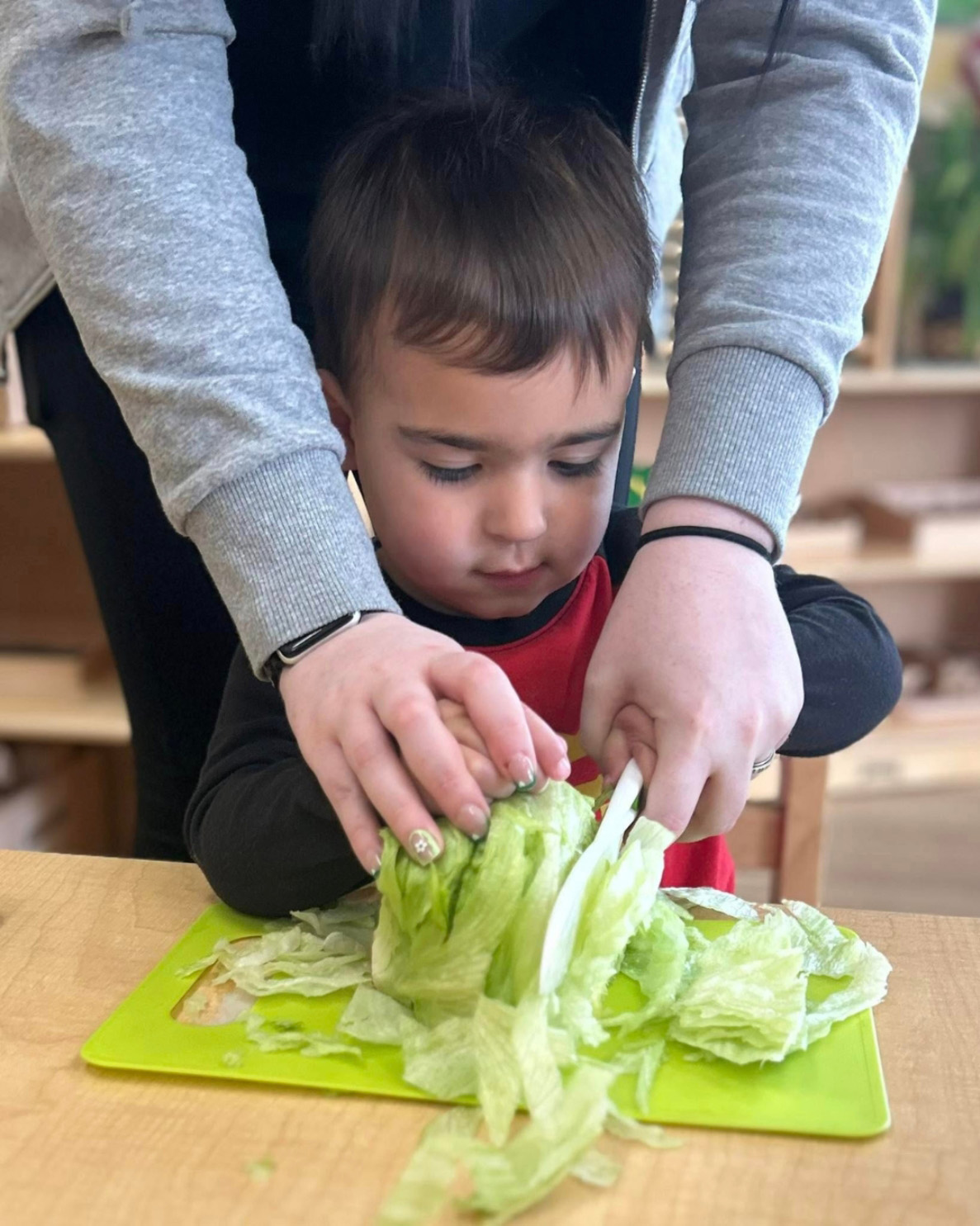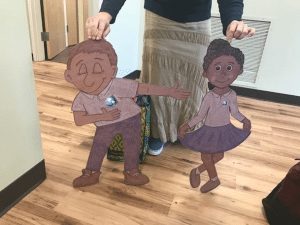Why Cooking Belongs in Preschool
In Montessori education, Practical Life lessons prepare children for the real world while developing concentration and coordination. Cooking is a natural extension of this philosophy. Preschoolers go beyond just mixing ingredients. They learn to measure, pour, chop safely with child-sized tools, and share food they have prepared. These activities teach practical independence and also foster a sense of responsibility to the classroom community.
Practical Life Skills in Action
A Montessori kitchen shelf may hold pitchers, measuring spoons, mixing bowls, and trays with simple recipes. A child might peel a boiled egg, slice bananas with a child-safe knife, or measure flour for bread dough. Each task strengthens fine motor skills while building confidence. Children learn to sequence steps, follow through to completion, and clean up their workspace. These lessons carry over into daily life, helping children feel capable and respected.
Cooking as a Bridge to Gratitude
When a child prepares snacks for classmates, cooking becomes an act of service. The student who slices apples and offers them to friends sees how their effort contributes to the group. In turn, classmates express appreciation, reinforcing a cycle of gratitude. This real exchange helps children understand that gratitude is not abstract. It is felt when we contribute to others’ well-being.
Reggio Emilia Influence: Creative Expression Through Food
The Reggio Emilia approach values expression in many forms. Cooking activities invite children to explore colors, textures, and tastes in creative ways. A group might arrange vegetables into patterns before making a salad, or use herbs from the classroom garden to spark a conversation about smell and memory. Cooking becomes more than a task. It becomes a project of discovery, where children connect sensory experiences to culture, creativity, and community.
DaVinci Kids Connections: STEAM in the Kitchen
Cooking also integrates seamlessly with the DaVinci Kids enrichment program. Recipes become opportunities for science and math exploration. Children measure ingredients, observe liquids transform into solids, and predict how heat changes food. Teachers encourage questions such as, “What will happen when we stir oil and water?” or “Why does bread rise?” Cooking becomes an early laboratory where science and daily life meet.
Supporting Cooking at Home
Parents can reinforce Montessori cooking experiences at home with a few simple strategies:
- Provide child-sized tools such as a small whisk or safe knife.
- Invite your child to wash produce, pour liquids, or stir mixtures.
- Choose real recipes with clear steps and let your child take part in completion.
- Allow time for your child to clean up, building responsibility alongside independence.
Cooking at home does not need to be complex. A bowl of fruit salad or a tray of homemade granola bars can become a powerful learning opportunity.
Why Cooking in Montessori Feels Different
In many preschools, cooking may appear as a special project with pre-prepped ingredients and a teacher leading each step. In Montessori classrooms, cooking is child-led. Materials are accessible, recipes are simplified for independence, and children make real choices. The difference is that cooking becomes an everyday practice of confidence, service, and joy.
From Kitchen Work to Lifelong Habits
Cooking in the Montessori preschool classroom helps children build independence, gratitude, and awareness of the world around them. Through Montessori Practical Life, Reggio-inspired creativity, and DaVinci Kids enrichment, food preparation transforms into a meaningful learning journey.Find a Montessori Kids Universe location near you to see how our Montessori preschool cooking activities foster independence, responsibility, and joy in every child.


